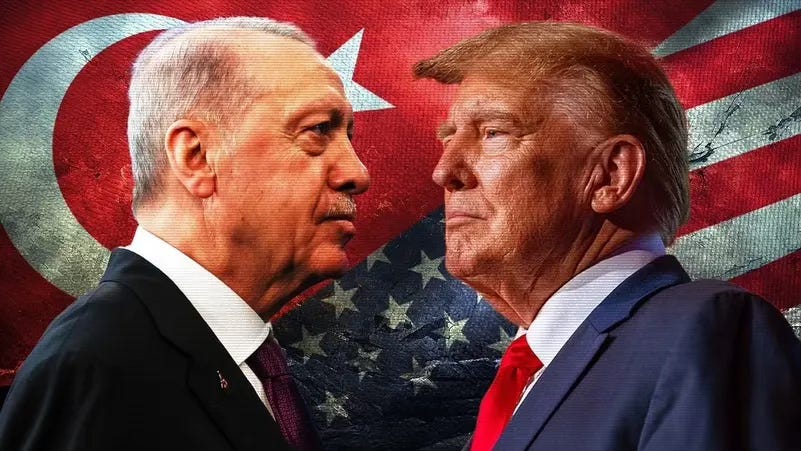With love, from Erdoğan's Turkey to Trump's America
While Erdoğan and Trump sit together, let this sister of yours offer a pocket atlas of the troubles we endured in Turkey — and that you are bound to face in Trump’s America.
Donald Trump and Tayyip Erdoğan’s meeting in New York alongside the UN summit. Two ‘good’ friends with the same worldview — but only minor, trivial issues such as the genocide in Gaza — meet in New York to do ‘business.’ While they are at it, I will give you a pocket atlas of troubles drawn from Turkey’s experience under Erdoğan. Think of it as a three-course meal that is hard to digest, but you must sit through it to take the right steps later. Or a gentle reminder of the larger patterns and longer shifts.
First Course: From CEO of Islamism to CEO of Evangelism
Trump and Erdoğan share more than transactional affinities. They both think and act through a managerial lens, approaching statecraft less as statesmen and more as executives. Problems are framed as operational snags, solutions are cast in terms of deals, and success is measured in the language of profit and loss. We know the type by now.
Far from being embarrassed by this reduction, both take pride in it. Erdoğan…



